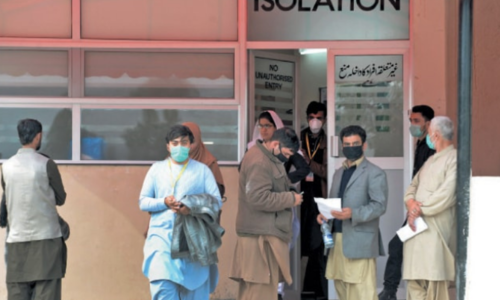ISLAMABAD ( Web New )
The UK in partnership with the International Rescue Committee (IRC) delivered cash assistance to 47,891 of the most poor and vulnerable families impacted by recurrent and recent disasters. The pandemic, loss of livelihoods and further devastation due to heavy floods and locust invasion in the targeted districts harmed the ability and capacity of vulnerable populations to access basic services.
Cash assistance was provided to vulnerable families in Jhal Magsi, and Chaghai Districts of Balochistan, and Peshawar, Swat, and D.I. Khan Districts of Khyber Pukhtunkhwa, in close coordination with the Government’s Benazir Income Support Programme (BISP), National Socio-Economic Registry (NSER) and EHSAAS Program. Primary focus of the assistance were marginalized communities, 80% of whom were women, who received a total of PKR 877 million. These beneficiaries were not receiving support from any other government or private social protection and safety net programs.
A digital payment transfer mechanism with biometric verification was used for the disbursements to ensure safer, more transparent, cost-effective, and swift transfers of bulk payments. While delivering the cash assistance, IRC ensured the safety and protection of the target beneficiaries by following the safeguarding and do no harm principles across the project cycle.
“Cash transfer is one of the best ways to serve those in need. It gives the targeted beneficiaries the freedom and options of using the cash in a way they best feel suitable, some use the cash to start or sustain a small business, others use it to feed their families, pay school fees or meet other unique needs they have,” a community leader from Swat district said summarizing the effectiveness of the program.
A survey conducted by an external team noted the effects of these cash grants on increased food consumption and reduced negative coping strategies. The evaluation illustrates that more than two-third (77%) of the beneficiary’s households did not use negative coping strategy to buy food during the assistance period. Vast majority (93%) of the households used the cash grant on purchasing food while a small proportion of the grant was spent either on returning a loan or health of a household member.
A number of government authorities at the provincial and district level, elected representatives and civil society members appreciated the relevance, timeliness and appropriate assistance offered through ‘Delivering Cash Assistance to Highly Vulnerable Population in Pakistan’ (DCAP) project to the most deserving households. They also requested IRC and the donors to continue the program and extend cash support in the areas which have not been covered thus far.
“The DCAP project affirms our commitment to promptly respond to the needs of the most vulnerable communities by delivering humanitarian assistance in the form of cash. We believe these grants will help our clients better manage the their needs and vulnerabilities, and get back on their feet soon.” Adnan Junaid, IRC’s Country Directo

